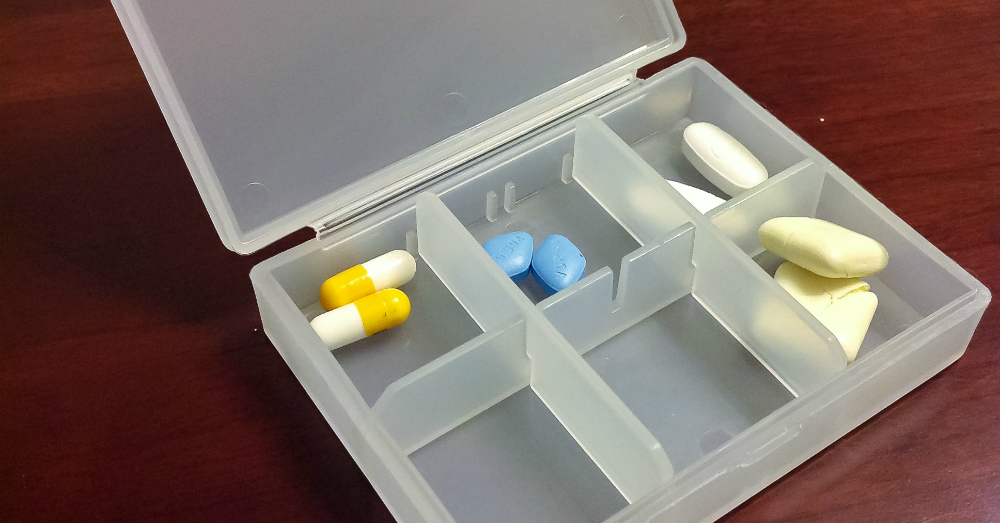Actos
- Introduction
- Uses of Actos
- How Actos Works
- Off-label Uses of Actos
- Dosage and Administration
- Composition of Actos
- Side Effects of Actos
- Common Side Effects
- Interaction with Other Medications
- Warnings and Contraindications
- Careful Administration and Important Precautions
- Administration to Special Populations
- Overdosage and Management
- Storage and Handling Precautions
- Conclusion
Introduction
Actos, also known as Pioglitazone has gained recognition as a player in the field of antidiabetic medications. As a derivative of thiazolidinedione, Actos primarily works to improve insulin resistance. Its importance in the community cannot be overstated, especially when type 2 diabetes mellitus (T2DM) has become a global health concern. Endocrinologists and general practitioners alike rely on Actos due to its effectiveness and unique mode of action.
Uses of Actos
Actos is a brand-name prescription drug that is used to help control blood sugar levels in adults with type 2 diabetes. The medication should be used along with diet and exercise 1. Pioglitazone, the active ingredient in Actos, belongs to a class of medications called thiazolidinediones. These drugs help your cells become more sensitive to insulin. This means the cells can take the sugar from your blood and use it as energy 1.
Actos offers several advantages compared to other medications for diabetes, such as a reduced risk of low blood sugar levels, effective control of blood sugar, without increasing insulin production and beneficial effects on lipid metabolism 1.
Please note that Actos can cause mild or serious side effects. For more information on the possible side effects of Actos, talk with your doctor or pharmacist 1.
How Actos Works
Actos works by activating a receptor called peroxisome proliferator-activated receptor gamma (PPARγ), which plays a key role in maintaining the body's balance of lipids and glucose. This activation leads to increased transcription of genes that respond to insulin ultimately improving glucose and lipid metabolism, in tissues outside of the nervous system.
Off-label Uses of Actos
Apart from its role in treating type 2 diabetes (T2DM), there is growing research suggesting that Actos may also have therapeutic benefits for conditions such as polycystic ovarian syndrome (PCOS) and fatty liver disease 2. Ongoing scientific studies continue to provide insights into the potential therapeutic effects of Actos making it a subject of interest, in various clinical trials 2.
Please note that Actos can cause mild or serious side effects. For more information on the possible side effects of Actos, talk with your doctor or pharmacist 1.
1: Medical News Today 2: Oxford Academic Journal Article
Dosage and Administration
For patients, the usual starting dose is between 15mg to 30mg, taken once a day. The specific dosage depends on each person's needs and may be adjusted based on how they respond to the medication. It's essential to monitor blood glucose levels to ensure the dosage is appropriate for achieving the best treatment results. Actos tablets are typically taken by mouth, either with or without food.
Composition of Actos
The primary component of Actos, known as pioglitazone, is responsible for its ability to lower blood sugar levels. Other ingredients, like hydroxypropyl cellulose and lactose monohydrate, are included in the formulation of the drug to maintain its stability and improve how it is delivered within the body.

Side Effects of Actos
Overview of side effects: Just like any other medication, Actos can cause side effects. These can vary from mild and temporary to serious ones that require medical intervention. Some common side effects include edema, weight gain, and anemia while rare complications, like congestive heart failure, should be promptly addressed by a healthcare professional.
Common Side Effects
You may notice symptoms and indications such as feeling tired, retaining fluid, or having a mild form of anemia. However, these symptoms usually improve over time. To manage and minimize these effects it is important to check ups make lifestyle changes if needed and adjust the dosage if necessary.
Interaction with Other Medications
Some medications can. Enhance or lessen the impact of Actos. For example, drugs like gemfibrozil or rifampin may. Decrease its effectiveness. It is crucial for doctors to consider drug interactions carefully and regularly monitor patients to avoid any unexpected complications. They may also need to adjust the dosage if necessary.
Warnings and Contraindications
Certain health conditions and situations where it is advisable to avoid Actos; Individuals who have heart failure or are currently dealing with bladder cancer should refrain from undergoing Actos therapy. The importance of evaluating a patient's history; It is crucial to thoroughly examine a patient's medical records to prevent any potential treatment errors highlighting its significance in clinical practice.
Careful Administration and Important Precautions
Regular monitoring of liver function tests is crucial before and during the use of Actos therapy to prevent any liver-related complications. It is important to have follow-up appointments with your healthcare provider to assess the effectiveness of the treatment and proactively address any possible side effects. These follow-ups are a part of your ongoing care and should not be overlooked.
Administration to Special Populations
Elderly; Adjustments and considerations: When it comes to the population, it's essential to be careful with dosing due to their changed bodily processes and potential existing health conditions. The way Actos is cleared from the body through the kidneys and processed by the liver can be different in individuals, and this, along with other medications they may be taking, can make them more sensitive to Actos. That's why it's recommended to start with a dose and closely monitor for positive and possible side effects. Pregnant Women and Nursing Mothers; Potential risks and guidelines: Actos falls under pregnancy category C, which means animal studies have shown some adverse effects, but we're not sure how that translates to humans yet. Because there could be a risk to the developing baby, it's generally advised to use Actos during pregnancy if the benefits outweigh any potential dangers. As for nursing mothers, we don't know if Actos is excreted in human breast milk. So, deciding whether to stop taking the medication or breastfeeding should depend on how vital Actoss is for the mother's health. Children: Dosage, safety, and efficacy considerations: We don't have solid evidence on how safe or effective Actos is for pediatric patients. That's why its use in children is not recommended at this time. If there is a need to explore using Actos in this age group, extreme caution should be taken due to knowledge in this therapeutic area.
Overdosage and Management
Signs of an overdose of Actos can vary, ranging from blood sugar to lactic acidosis. Some symptoms that may be observed in patients include sweating, palpitations, tremors, and confusion. If an overdose occurs, it is essential to take action. Depending on the patient's level of consciousness, gastric lavage or inducing vomiting may be recommended. Seeking medical attention is crucial in such situations. Additionally, supportive measures like administering glucose for low blood sugar should be initiated simultaneously.
Storage and Handling Precautions
The best way to store Actos is in a dry place away from direct sunlight. It is recommended to keep it between 15°C and 30°C for conditions. It's crucial to pay attention to the expiration date of Actos as it affects its effectiveness and safety. Using Actos after it has expired not only reduces its therapeutic benefits but also increases the risk of side effects. Regularly checking inventory and disposing of expired stock is essential for safety.

Conclusion
Here is a summary of the significance, benefits, and precautions of Actos: Actos is a medication used to treat type 2 diabetes. It plays a role in controlling blood sugar levels and improving lipid profiles. However, it's essential to know that Actos also carries some risks. To ensure its use, healthcare professionals must thoroughly understand the patient's medical history and potential risk factors. It strongly encourages patients to consult with healthcare professionals to manage diabetes. By following treatment plans and maintaining open communication about any concerns or issues that may arise, we can work together toward achieving optimal health and well-being.



























